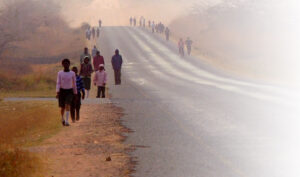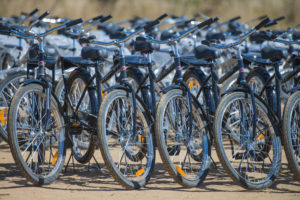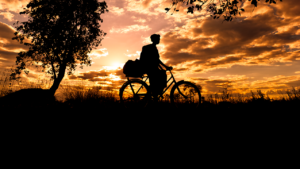
Farayi Mtangadura, World Bicycle Relief, Country Director, Malawi
Limited information dissemination, especially in rural areas, and limited resources for health workers are among the biggest issues. Mobility challenges make it difficult to reach out to communities with information and other services. There is also a lack of sanitary facilities, unsafe water in most communities, and congested health facilities.
In a country where people earn their income daily and can’t afford to shop in advance, a lockdown would pose immense economic challenges. Most people live on less than $1 a day. People are in danger of not being able to feed themselves without working.
Reduced economic activity is leading to food insecurity. The Inability to implement preventative measures due to low income levels means a lack of handwashing soap, masks, sanitizers, etc. There’s an inability to socially isolate because of congested households due to large families and extended families. There’s a potential for stigma and discrimination as well as gender-based violence as people spend prolonged time at home. Disturbed school schedules mean children will be missing out on learning and school activities.
Bicycles will help health workers with information dissemination on COVID-19 prevention and warning signs to communities. They help identify cases and strengthen referral systems for a timely response to patients with COVID-19.
Bicycles will also help accelerate back-to-care interventions for HIV clients who would miss appointments during a potential lockdown. This will help mitigate the effects of COVID-19 on treatment for HIV-positive clients.
Communities have not accessed adequate information on COVID-19, which would contribute to a reduction in the spread and morbidity rates due to the virus. Additionally, bicycles are in great need as the country weighs the potential of a lockdown. In such a case, frontline health workers will be able to do home visits to clients in need.
The bicycles you help provide will be a long-term asset within the health sector, which will promote communities’ access to information and services. Health workers and volunteers will continue to promote communities’ mitigation measures, and in the process, promote communities’ resilience long after the crisis as well.
The economic effects of COVID-19 have the potential to increase the risk of child abuse, teenage pregnancies, and early marriages. Additionally, cases of gender-based violence could rise. World Bicycle Relief feels that mitigating early negative effects would help in preventing further negative outcomes.
The bicycle has the power to reach out to communities and play a role in promoting positive mitigation measures.


